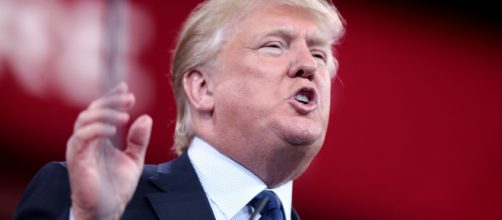President Trump is notorious for shaking up his cabinet on the regular, but in the last month things seem to have shifted. Rather than trading in standard conservatives for personal loyalists, the president is bringing in those who want and those who know most about how to fight a dirty war.
Mike Pompeo
Mike Pompeo was a Republican congressman from Kansas for 6 years before being tapped to work as Trump's CIA director. He made a name for himself in the house by going after Hillary Clinton aggressively for her choices surrounding the attack on a U.S.
embassy in Benghazi and by criticizing most moves President Obama made in the national security realm. He has been notably aggressive on everything involving Iran.
During his 14 months as director of the CIA, Pompeo faced criticism for not defending the agency from attacks by the president, leading some to believe he's not an independent director. The intelligence agencies have, after J. Edgar Hoover, been expected to remain neutral to the political will of the president to avoid letting the Commander in Chief abuse his access to intelligence. Former FBI director, James Comey, attempted to uphold that standard, but instead the president showed that he is willing to fire those he deems disloyal.
The loyalty shown by Pompeo is valued by the president and is likely the reason he's taking over at the state department tomorrow.
Pompeo will take over the State Department during a tense time. He will oversee the talks with Russia as diplomatic ties are strained; the Iran nuclear deal and its implementation; as well as the surprise talks with North Korea, announced earlier this month. All three are nations Pompeo has previously been in favor of pressuring with force, but now he will have full diplomatic powers. Usually, the job of the Secretary of State is to promote the vision of the U.S. worldwide through peace and negotiation, but that does not seem like Pompeo's style.
Gina Haspel
Taking over for Pompeo at the CIA is lifelong CIA agent Gina Haspel. She is incredibly popular within the agency because she is the first insider to work her way up to director.
Haspel has caused controversy for her role in black sites in Thailand, where detainees were tortured. She was implicated in the cover-up when she directed her subordinates to destroy videotapes of the torture.
This all happened under President Bush and none of it was actually illegal, as long as the practices aren't acknowledged as torture, but instead as "enhanced interrogation techniques." Ms. Haspel is no stranger to doing what she feels is right to gather the intelligence she needs even if it's at odds with the law. Her lack of restraint fits into the president's plans because the CIA has historically repeatedly instigated wars in foreign countries.
John Bolton
Ambassador John Bolton is often said to be the scariest of the new additions by career politicians and political pundits alike.
Though pundits might esteem his resume, having served for a year as Ambassador to the UN as a recess appointment under President Bush and as director of arms reduction in the Department of Defense, they're worried about his wanton attitude toward military force. Since then, he has regularly appeared on Fox News.
He is a pariah in the diplomatic community because of how often he advocated for war, despite never having served himself. He hates Iran, he suggested launching a preemptive strike against North Korea this year, and he includes Russia in his "axis of evil" according to the Washington Post. Bolton was implicated in the Iraq controversy when it was discovered that he helped distort intelligence that led the U.S.
into the war. Now, as Director of National Security, he will be the point person bringing threats and solutions to the president. This is an extremely powerful position for someone known for lying to the public and berating his subordinates.
Addition by subtraction
Not only does the nation have to contend with three new power hawks in the administration, but also the loss of experienced diplomats. Tillerson, who will leave Foggy Bottom tomorrow, had great relationships with world leaders due to his time at Exxon. McMaster, replaced by Bolton, was known for having a firm grasp on modern peace theory and advocating for diplomacy first. And John Kelly, still chief of staff, is being increasingly alienated; it was reported by the New York Times that Kelly wasn't consulted on bringing in Bolton.
This means the administration has lost all voices advocating for peace first. The administration has lost a considerable amount of its diplomatic corps. The consequences will be greater than the nation has yet realized. They will be long-lasting.


